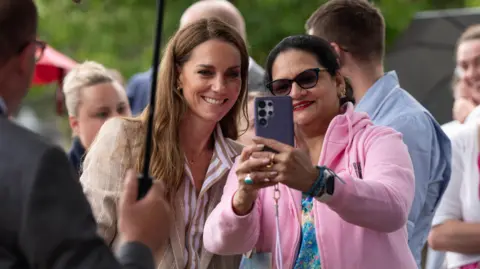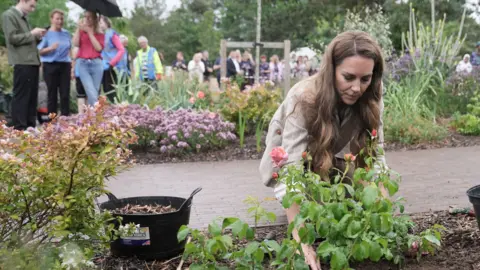- Culture
Reform UK policy would transfer money directly to poorest 10%
时间:2010-12-5 17:23:32 作者:Editorial 来源:Cybersecurity 查看: 评论:0内容摘要:Pathe Gueye, left, and Ndeye Lam, right, stand on their roof in Dakar, Senegal Saturday, Jan. 11, 2025. Their daughter Mariama died at age 13 of a rare genetic disease. (AP Photo/Annika Hammerschlag)Pathe Gueye, left, and Ndeye Lam, right, stand on their roof in Dakar, Senegal Saturday, Jan. 11, 2025. Their daughter Mariama died at age 13 of a rare genetic disease. (AP Photo/Annika Hammerschlag)
NEW DELHI (AP) — New Zealand’s deputy prime minister said on Friday that talks over abetween his country and India were ongoing, but he didn’t provide a timeline for when the two nations could eventually sign a deal.

Winston Peters, who is on a two-day visit to India, said that the negotiations were “going with real meaning now,” calling them “a breakthrough in our economic relationship.”India and New Zealand began negotiations in March for a trade pact, and had aimed to sign a deal in 60 days. The deal will significantly bolster economic ties between the two countries, but it has faced delays because of differences over tariffs on dairy products.Bilateral trade between India and New Zealand stood at $1.7 billion in the 2023-24 financial year.

Talks between India and New Zealand were taking place amid global trade tensions, after U.S. President Donald Trump’s decision to impose now-paused reciprocal tariffs on imported goods from several countries, including India.Earlier this month, India and the United Kingdom

. India is also engaged in trade talks with Washington.
Peters, who met with India’s Group of 20 emissary, Amitabh Kant, in New Delhi, said that India was New Zealand’s 12th-largest partner in trade and “we are determined that we’re going to work to change that.”That research is creating a library of genetic data for scientists and clinicians. Patients in Senegal are benefiting, too, with a path to diagnosis.
Fatoumata Sané holds her daughter Aissata, 8, who suffers from a rare genetic disease, at their home in Dakar, Senegal, Saturday, Jan. 11, 2025. (AP Photo/Annika Hammerschlag)Fatoumata Sané holds her daughter Aissata, 8, who suffers from a rare genetic disease, at their home in Dakar, Senegal, Saturday, Jan. 11, 2025. (AP Photo/Annika Hammerschlag)
In Guediawaye, Fatoumata Binta Sané’s daughter Aissata has glutaric acidemia type I, an inherited disorder in which the body can’t process certain proteins properly. Her arms and legs are tightly drawn up toward her chest. She can’t walk or reach for things, speak, sit on her own or hold her head up. Sané cradles Aissata in her arms constantly, and the 8-year-old smiles at the sound of her mother’s voice.In the U.S., newborns are screened for treatable genetic conditions. In Senegal, newborn screening is not routine. Infants who appear healthy at birth might go undiagnosed and experience irreversible decline. Glutaric acidemia type I, for example, can cause brain damage, seizures, coma and early death.
- 最近更新
- 2025-07-07 05:36:34NBA Finals: 1 bettor wagered $8 million (!) on the Oklahoma City Thunder to win the t…
- 2025-07-07 05:36:344 hours ago For Independence Day, NPR wants to know: What does freedom mean to you?
- 2025-07-07 05:36:34Can start-up success be taught?
- 2025-07-07 05:36:34How Gen X mentors help Gen Z staff to thrive
- 2025-07-07 05:36:34World-class rounds await a hop, skip and a putt away from the Scottish capital
- 2025-07-07 05:36:344 things to know about the U.S. airstrikes on Iran
- 2025-07-07 05:36:34Always PetsWeird things you do that tell your dog you’re leaving the house
- 2025-07-07 05:36:34Redinel Korfuzi and his sister both convicted of insider dealing and money laundering
- 热门排行
- 2025-07-07 05:36:34EyeVac Pro Touchless Automatic Dustpan
- 2025-07-07 05:36:34Further disruptions to global supply highlight urgent need for Europe to diversify energy sources
- 2025-07-07 05:36:34How to build an emergency fund on any budget
- 2025-07-07 05:36:34Three top golf courses within swinging distance of Edinburgh
- 2025-07-07 05:36:34Best car insurance companies for 2025: AOL editor picks for rates, claims and more
- 2025-07-07 05:36:34Estate & Retirement Planning
- 2025-07-07 05:36:34cutting back on monthly expenses
- 2025-07-07 05:36:3416 people sent to ER during New Jersey graduations as a potent heat dome builds over …
- 友情链接
- Leaders risk getting into a shouting match with Donald Trump over increased defence spending PM Shigeru Ishiba’s LDP defeated ahead of upper house vote next month Who has Trump’s ear on Iran? Investing in America: The best US cities for international business Keir Starmer’s balancing act on Iran risks political pain at home Trump’s fateful choice on Iran Self-driving technology on which Elon Musk has staked future of his company debuts in Texas Gulf allies shaken by Trump’s Iran strikes Japanese politics & policy The truth about Mark Zuckerberg’s macho-man makeover Investing in America: The best US cities for international business Sign up for Swamp Notes, our newsletter on the intersection of money and power in US politics Real success for Trump in Iran will require de-escalation Inflation and interest rates tracker: see how your country compares Anneleen Van Bossuyt suggests measures echoing Donald Trump’s negotiation tactics What happens to Nato if the US steps back? Next week’s development finance conference in Seville is unlikely to deliver much Trump faces backlash from Maga base Inflation and interest rates tracker: see how your country compares The Israel-Hamas war in maps and charts Trump faces backlash from Maga base Trump tracker: the latest data on US tariffs, trade and economy US moves B-2 stealth bombers into Pacific as Trump weighs entering war Sign up for Swamp Notes, our newsletter on the intersection of money and power in US politics Building the product shelf of the future Real success for Trump in Iran will require de-escalation Reform UK policy would transfer money directly to poorest 10% Leaders risk getting into a shouting match with Donald Trump over increased defence spending Sánchez torpedoes Nato unity on eve of crucial summit The Israel-Hamas war in maps and charts
